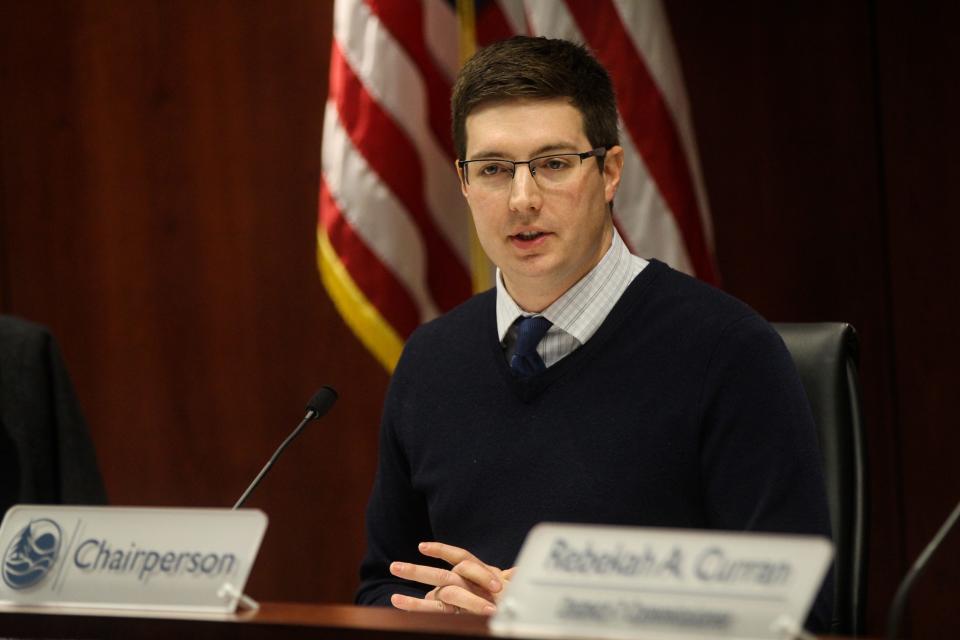Michigan's opioid settlement money is being held up by a lawsuit from Ottawa County
OTTAWA COUNTY — Ottawa County is back in the headlines this week.
Roughly $80 million in opioid settlement money slated to go to communities across the Michigan is being held up because the county is contesting the amount it's earmarked to receive.
The money, part of Michigan's share of a $26 billion national settlement with three pharmaceutical distributors and an opioid manufacturer, is the subject of a lawsuit filed by Ottawa County against the state of Michigan and Attorney General Dana Nessel. The county alleges the funds are being wrongly distributed.
Doug Van Essen, the attorney representing Ottawa County in the lawsuit, said local governments shouldn't be disbursing money because they don't run substance abuse treatment centers and that the state alone should distribute settlement money to individual programs.
In addition, the county argues its residents deserve more than the $2.6 million the county is slated to receive over the course of the 18 years the money will be distributed.
“Ottawa County is scheduled to get $2.6 million. … It’s the seventh largest county in Michigan, behind Washtenaw and ahead of Ingham. We have 300,000 people. Montcalm, which is just north of Grand Rapids has, I don’t know, 50,000 people … it’s getting $2.2 million," he said. "So on its face, it didn’t seem logical."
The lawsuit frustrations come amidst turmoil in Ottawa County, which saw its board of commissioners with a new majority in January — backed by far-right organization Ottawa Impact.
After being sworn in Tuesday, Jan. 3, the board made a slew of changes. They fired county administrator John Shay and replaced him with former GOP candidate John Gibbs without conducting a public interview; eliminated the county’s Diversity, Equity and Inclusion Office; chose a new health director to replace the successor to Lisa Stefanovsky who'd already been approved by the state; replaced the county’s counsel and changed the county’s vision statement.

The vote to replace Doug Van Essen as the county’s corporation counsel, replacing him with Kallman Legal Group, took hours. The transition will happen on or before Feb. 28.
But according to Van Essen, he'll remain the county’s representative in litigation through a separate contract with the Ottawa County Insurance Authority, which is beyond the purview of the board.
In the opioid settlement lawsuit, Van Essen said the metrics used to determine the amount of money each local government would receive were based on the number of overdose deaths in the jurisdiction, the number of prescriptions issued and the number of people who have been diagnosed with addiction — all of which, he said, can be unreliable.
He said settlement money should be awarded based on population.
According to the 2020 census, Montcalm County had about 67,000 residents. Ottawa had about 296,000.
“Ottawa County is the only local unit of government in America to contest their allocation of the national multi-billion dollar opioid settlement,” Nessel wrote in a Facebook post on Wednesday, Jan. 4. “As a result, none of the other 82 counties in Michigan have received their settlement funds which could be used immediately to combat and prevent opioid addition and abuse.”
She went on to say: "Michigan is the only state in American not to have received their funding for local governments as a result of Ottawa County's decision to file suit on this matter."
Michigan has been hard hit by the opioid epidemic, which began with the misuse of pain medication, morphed into a heroin crisis and is driven now by fentanyl, an ultra-potent synthetic opioid. In 2021, the last year for which numbers are available, Michigan recorded 3,040 overdose deaths, the most ever, according to the U.S. Centers for Disease Control and Prevention.
In all, Michigan is scheduled to receive about $776 million from the settlement with three opioid distributors and manufacturer Johnson and Johnson, paid out incrementally over 18 years. Half of the total payout — $631 million from pharmaceutical distributors Cardinal, McKesson and AmerisourceBergen and $145 million from Johnson and Johnson via its pharmaceutical company Janssen — will go to the state and the other half will be distributed among 278 local governments.
The money is to be used for prevention and treatment of opioid addiction, including medication-assisted treatment, syringe exchange services, Narcan distribution, healthcare services for addicts and recovering addicts.
In addition, the state of Michigan is to receive $19 million paid out over five years by the consulting firm McKinsey and Co. — which was accused of promoting opioids as a consultant to Purdue Pharma. It has already received two payments. The money is also to be used for opioid abatement programs.
In late 2022, Nessel's office also said the state was expecting to receive money from a national settlement with Walmart over its dispensing of opioid pain medication.
This article originally appeared on Detroit Free Press: Michigan's opioid settlement money held up by lawsuit from Ottawa County
